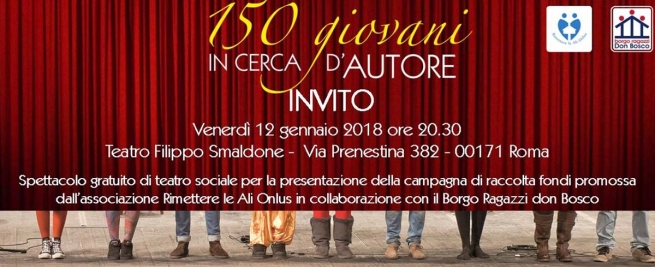Although the school drop-out rate in Italy is decreasing, and rate has decreased from 14.7% in 2015 to 13.8% in 2016, (source: Eurostat) the risk persists, especially where conditions of hardship are experienced. This result highlights two things: the fight against early school leaving is bearing fruit; this encouraging data, therefore, calls for ongoing targeted action in territories marked by hardship. This is the case of the peripheral territory wherein Borgo Ragazzi Don Bosco operates, an area affected by different types of poverty, not just economic.
"Borgo Ragazzi Don Bosco undertakes to involve and seek out new benefactors who can become proactive authors of change and for the future of young people in difficulty," said the initiative's promoters in a statement. "The support of benefactors becomes extremely valuable, if not indispensable, to be able to carry out projects and offer services that institutions often fail to adequately support."
For the launch of the campaign, Borgo Ragazzi Don Bosco and "Rimettere le Ali Onlus" organized a free show of social theater at the Teatro Filippo Smaldone in Via Prenestina 382, Rome, at 8.30 PM, on Friday, January 12, 2018.
Established in 1948 to welcome the "sciuscià", or the post-war orphans, the "Borgo Ragazzi" continues to welcome, even today, young people at risk and in social, economic and/or family difficulties. It operates in East Rome (Municipalities IV, V, VI), defined as high risk zones by the Ministry of the Interior for the presence of a high incidence of citizens living in an emblematic condition of social hardship (difficulty of cultural integration, high unemployment, high early school leaving rate, high rates of juvenile crime). Even the most recent report of the City of Rome marks this area of the capital as the one with the highest percentage of social hardships.
For more information, visit: http://borgodonbosco.it


